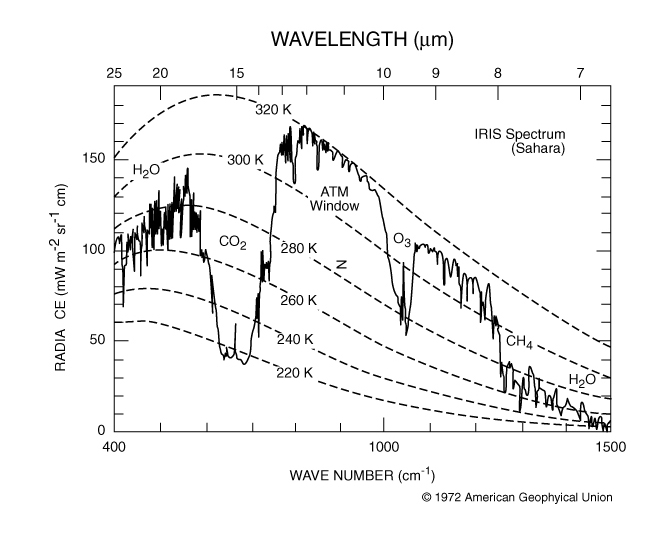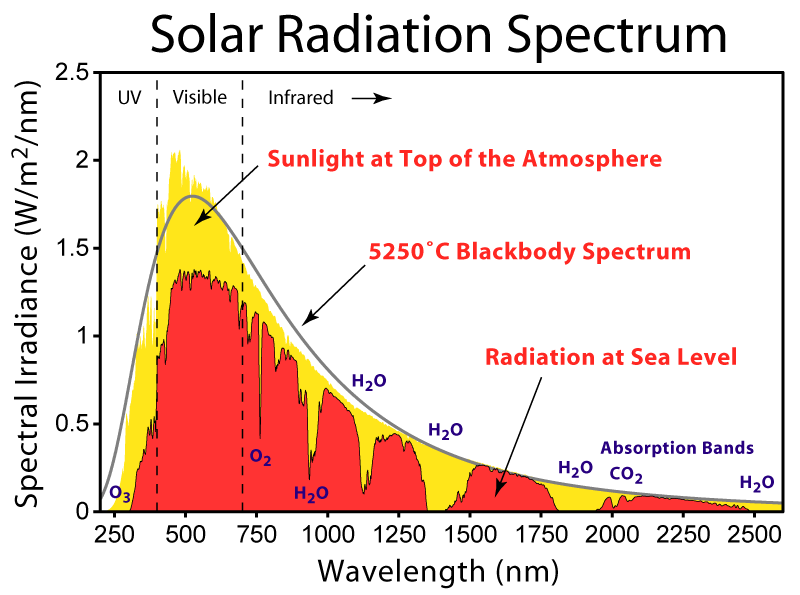There is so much wrong with the OP, I have to say something

. To frame where I'm coming from, I'm a research scientist currently studying biology, but my training was in physical chemistry. I have, in the past, worked in a research group studying the physical basis of how gasses absorbs infra-red light, using lab-based measurement. I've also worked in an astrophysical chemistry lab studying infra-red light being absorbed by interstellar clouds, using telescope data. Hopefully I can clear up some of the misconceptions in this post, also using beer to illustrate!
CO2 is at a level of around 400 parts per MILLION! An infinitesimal proportion of the atmosphere. CO2 doesn't act as a blanket, keeping the world warm. Not compared to the only greenhouse gas of any significance. That is water vapour, or clouds, which are not even a gas! When it's cloudy at night, it stays warmer than when the sky is clear. Even in a burning dessert it can freeze at night. Proof!
Pre-industrial levels of CO2 was about 275 parts per million (ppm), but since burning fossil fuels this has shot up by 45%, to the level you quoted, 400 ppm.
You're right, this is still a very small proportion, but that doesn't mean it doesn't matter. As an analogy, the proportion of iso-alpha acids in your beer is
minuscule, around 40 ppm. However, to take this as "proof" that alpha-acids from hops cannot possibly contribute to the bitterness of your beer would be plain wrong.
Clearly, iso-alpha acids are very potent, and the question to ask about CO2, is how potent is it as capturing energy that would otherwise disappear into space? The earth is radiating infra-red light into space, and greenhouse gasses absorb some of that light and turn into heat in the atmosphere, and a similar process is going on in your beer. Light passes through it, and the amount of light that is captured by your beer depends on your speciality grain. Some grains, like roasted barley, are very potent at absorbing light. So powerful that with less than 5% of it in your grist, no light would pass through and your beer would be completely black. Adding more would make no difference to the colour, it would still be black. Using Duxuk's logic, you might conclude that a tiny 1% roasted barley in your grist would have no effect on the colour, and you'd be wrong. Other grains, like crystal, are not so potent. Even with 100% crystal in your grist, some light would still get through. So, if greenhouse gasses are like speciality malts, what components make up the grist in the sky? Is our atmosphere more of a porter or a pale ale? How has upping the CO2 by 45% changed the 'colour' of our planet? Just as we can hold up our pint and judge how much light is passing through it, we can send a telescope out to space, point it towards us, and record the spectrum of our planet. Time to look at some
real data:
The above is the infra-red spectrum of our planet, showing how much energy is radiating away into space and being picked up by the telescope at different wavelengths. If we didn't have an atmosphere, then this graph would look like the dotted line marked 320 K (because
this). At some frequencies, the measured radiation is the same as this curve, like the region marked ATM window, showing that there are no gasses capturing the energy at those wavelengths. At other frequencies we can see that our atmosphere
is capturing some of the infra-red that would otherwise radiate away. For instance, at around 1050 cm-1 is a dip caused by ozone (O3). Now ozone is very potent at capturing energy in the atmosphere. It is truly the black malt of the atmospheric gasses. Luckily, it forms only a tenth of 1 ppm in the atmosphere; the reason it doesn't have much effect is because it makes up so little of our celestial grist. Another potent one is methane (CH4), which absorbs energy at around 1300 cm-1, and quite a lot of it considering it is there in only 2ppm. Duxuk is right when he says that water is a very important greenhouse gas, as it is absorbing quite a lot of energy below 600 cm-1 and above 1400 cm-1. However, at 10000 ppm, there is loads of it, so it is more of a carapils, and nowhere near as important as climate change deniers would have you believe.
Now, you can't have not noticed the elephant in the room. That massive dip at 650-750 cm-1, right where the peak of the dotted line should be. That is the CO2 absorption. There is no downplaying it. CO2 is absolutely critical in determining how much energy our atmosphere is letting go. It is the chocolate malt of the greenhouse gasses. In pre-industrial times, that dip would've been significantly higher, the atmospheric equivalent of 2% chocolate in the grain bill, a nice English bitter if you like. Human CO2 release means we now have a brown ale, and we are heading towards porter territory. Some people, namely those with financial connections to the oil industry, suggest that we just keep pumping out CO2 and hit the floor. Once we get to a dark stout, or 700 ppm CO2 thereabouts, then all the energy at those wavelengths will be retained in the atmosphere. Above that level, we could pump as much CO2 into the air as we like and have no further effect on global warming, just as once you get to 10% chocolate malt, adding more won't make any significant difference to the colour of the beer, as it is already black. Suffice to say, pretty much all climate scientists believe that this would be insanity and cause havoc with our weather and ability to produce food.
Anyway, with that central error dealt with, I'll quickly address the rest.
Global warming supporters have struggled to explain why historically CO2 levels in the atmosphere rise slightly after temperatures rise, rather than rising first to precipitate a temperature rise.
No they haven't. No reputable climate scientist has ever claimed that CO2 has to come first. Or, for that matter, denied that changes in temperature can cause the absorption or release of CO2 from the oceans, and thus that temperatures can trigger changes in CO2. This comment is completely misrepresentation. Temp increases do cause CO2 increases, which drive further temp increases, until a new equilibrium in reached. Read a book.
Global warming is cyclical and sooner or later we will enter a new ice age. Due to the decrease in solar activity we will experience a mini ice age, like in Elizabethan times, in between 4 to 20 years.
:thumb:
Yes, we are heading for an ice age. If CO2 had no effect then the world should be getting cooler. It isn't, and there is a reason for that.







